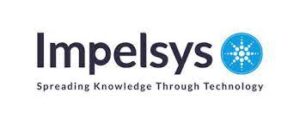VR Is Changing The Game In Custom eLearning
With the rising demand for custom eLearning development, VR is becoming a powerful tool that enables organizations to simulate real-world scenarios and deliver tailored training that is effective and lasting.
What Is VR In eLearning?
Virtual Reality is a simulated digital environment that immerses users in a 3D space, allowing them to interact with content in a lifelike way. When integrated into eLearning creation, VR brings abstract concepts to life, turning passive learning into active engagement. From healthcare to aviation, VR-based custom eLearning solutions are transforming how learners acquire and retain information.
Realistic Simulations: The Core Of Immersive Learning
One of the most impactful applications of VR in eLearning creation is the development of realistic simulations. Instead of reading about a surgical procedure, medical students can perform one virtually. Pilots in training can practice emergency protocols in a risk-free simulated cockpit. These hands-on experiences mimic the complexity of real-life situations, enhancing learner confidence and performance.
This realism is especially valuable in custom eLearning development, where content is tailored to the specific needs and challenges of an organization. VR allows developers to create unique simulations that align perfectly with company procedures, compliance requirements, and learning goals.
Why VR Is A Game-Changer For eLearning
Here are a few reasons why VR is reshaping the future of eLearning solutions:
1. Higher Engagement And Retention
Traditional training methods often struggle to hold learners' attention. VR, on the other hand, captivates users by placing them in interactive environments. Research shows that immersive learning improves knowledge retention rates, sometimes up to 80% than conventional learning methods.
2. Safe Learning Environments
VR enables learners to practice high-risk tasks—like performing surgery, managing hazardous materials, or troubleshooting machinery—without any real-world consequences. These safe environments support trial and error, which is crucial for skill mastery.
3. Personalized Learning Paths
Custom eLearning solutions developed with VR allow for adaptable learning journeys. Learners can progress at their own pace, revisit scenarios, or tackle new challenges based on their performance. This level of personalization is a hallmark of effective custom eLearning development.
4. Scalable And Cost-Effective
While the initial investment in VR might seem high, it can be more cost-effective in the long run. Once a VR training module is developed, it can be deployed across multiple locations, eliminating the need for live trainers, travel, and materials. For global organizations, this scalability is invaluable.
AR And VR: The Perfect Pair In eLearning
While VR offers full immersion, Augmented Reality (AR) enhances the real world with digital overlays. Combined, AR and VR are redefining how eLearning solutions are built and delivered. For instance, a maintenance technician can use AR to view schematics overlaid on real equipment, while VR can be used for a full diagnostic simulation beforehand. This blended approach is gaining traction in custom eLearning development and offers a versatile strategy for delivering contextual, on-demand learning.
Practical Applications Across Industries
Here are a few real-world examples of how organizations are using VR in eLearning creation:
- Healthcare
Virtual patients enable doctors and nurses to practice procedures, diagnosis, and patient interaction. - Manufacturing
Employees train on assembly lines, equipment operation, and safety procedures through simulated factories. - Retail
Staff learn customer service, product placement, and sales tactics in simulated store environments. - Aviation and defense
Pilots and soldiers undergo mission-based simulations that replicate high-stress scenarios.
These applications illustrate the flexibility of VR in custom eLearning solutions, especially when content must align with specific regulatory standards or operational goals.
Integration With Other Digital Solutions
The synergy between VR and other digital tools like eBook conversion is also worth noting. For example, interactive eBooks can serve as pre- or post-VR learning resources, offering theoretical knowledge that complements hands-on simulations. This multi-format approach supports different learning styles and maximizes content retention.
Moreover, the latest advancements in eLearning creation platforms make it easier to integrate VR content into Learning Management Systems (LMSs), track learner progress, and gather performance analytics—critical for continuous improvement.
Conclusion
The integration of Virtual Reality into custom eLearning development is more than a trend; it's a paradigm shift. By creating immersive, engaging, and personalized experiences, VR is proving to be a game-changer in the world of eLearning solutions. Whether it's enhancing training for high-risk jobs or creating engaging onboarding experiences, VR is enabling organizations to deliver impactful learning that drives real-world results.
As technology continues to evolve, embracing VR—and its close cousin AR—will be crucial for companies seeking to stay ahead in the competitive landscape of eLearning creation. With the right strategy and development partner, VR can transform how your workforce learns, performs, and grows.










